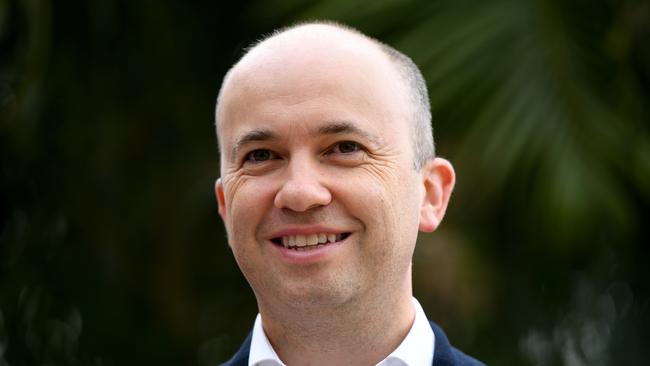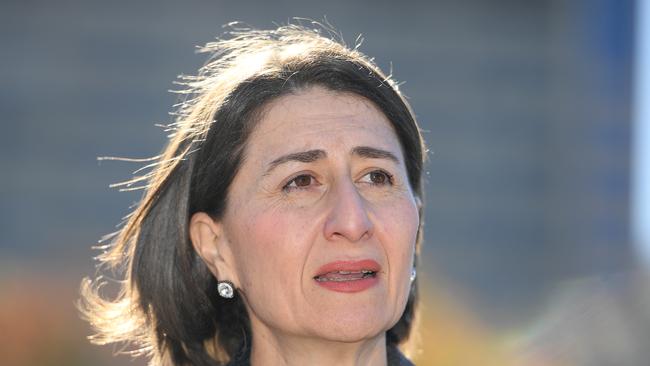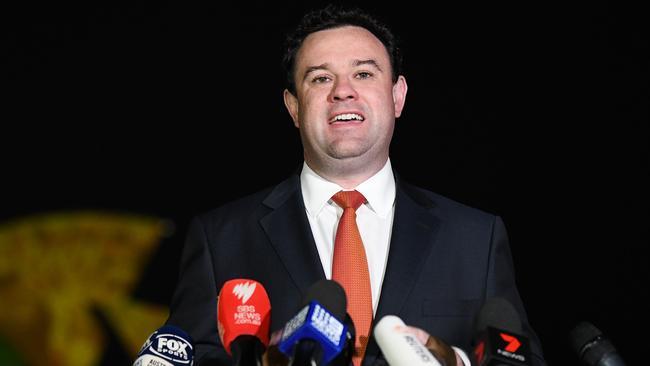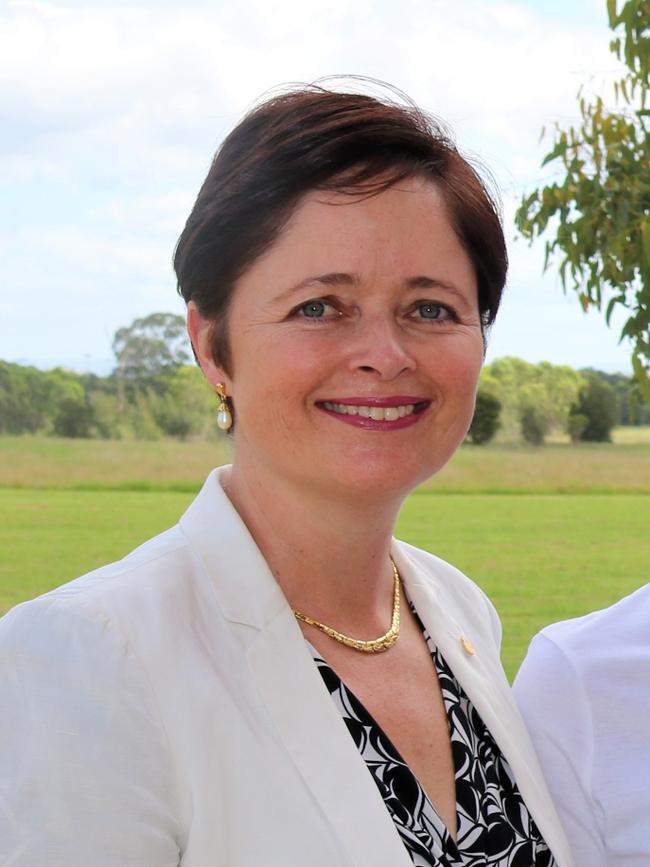Anna Caldwell: Redistribution of Liberal MPs’ priorities sorely needed
This week the state Liberals were caught out doing the worst thing possible: playing factional games when they should be taking care of the economy and our health, writes Anna Caldwell.
Opinion
Don't miss out on the headlines from Opinion. Followed categories will be added to My News.
- Game of Scones: Lib MPs’ strategic morning tea
- COVID rulebreaking minister given new travelling role
- Ex-minister ready to contest fine over COVID-19 breach
With Australia in recession, the NSW Liberal party acted out the very worst stereotypes of politicians.
Instead of worrying about the jobs of voters, they were exposed as worrying about their own in a bitter internal brawl over the party’s proposal to redraw electoral boundaries.
The party had hoped it could quietly spend hundreds of hours on the taxpayer dime behind the scenes, demanding sit-down meetings with MPs and drawing up a major proposal on restructuring the state’s electorates and no voter would notice.

Why would voters possibly care about an electoral redistribution until it lands in their mailbox?
Naturally, though, the project has been hijacked by claims of power plays, rivalry, survival and self-interest which all but guarantees headlines.
A series of stories in this paper revealed first how dumped minister Don Harwin had been appointed to manage the project and then most recently how MPs were bracing to be done over in Harwin’s plan, predicting a factional hit and friendship favours in this moderate powerbroker’s game of thrones.
Conservative Wendy Lindsay in East Hills, one of the state’s most marginal seats, told colleagues she believed not enough was being done in Harwin’s plan to build her a stronger margin.
Conservative Tanya Davies in Mulgoa was worried about a plan to shave down her own margin to bolster that of neighbouring moderate and Harwin friend Stuart Ayres.
Meanwhile, extra seats were being created which seemed to benefit moderates.

MPs across all factions revealed privately they were concerned about the process, even to the extent that a morning tea meeting of the conservative faction tasked Treasurer Dominic Perrottet to meet with the Premier to air their concerns.
After The Daily Telegraph on Thursday revealed that a string of ideas which had been conveyed to MPs in the course of the consultations, party operatives were annoyed concepts had been revealed to Labor, who are also working on their own redistribution submission.
But conservatives and other concerned MPs hoped that by speaking out six days before submissions are due, they may be able to effect some change in the proposal.
This deep internal feud — complete with multiple flash points — should have been foreseen by the Liberal Party and the Premier in its handling of the redistribution plans.
It is not hard to imagine MPs having concerns about Harwin being put in charge of the redistribution.

This is not because he is unqualified — he is eminently qualified and one of the party’s strongest psephologists, having worked on such projects for decades.
“Don Harwin’s forgotten more than the rest of us know about redistribution,” one Harwin ally said on Thursday.
The problem, rather, is that MPs believe he should not be in such a powerful position, in which he can influence their own futures, after he was stood down from the Ministry for breaking COVID rules.
MPs remain aggrieved that there is chatter about Berejiklian wanting to return her friend to the ministry if he successfully appeals his police fine in court, despite the fact that his actions did not pass the public pub test and that he had argued in cabinet against travel restrictions without declaring his personal interest.
MPs are aggrieved that he has the Premier’s imprimatur in this project — to the extent that he signs off as “leader’s representative” — after getting himself into a whole lot of trouble in April.
After taking on the project, Harwin announced his role to all MPs, telling them he would meet with lower house members to discuss the redistribution proposal.
Those who could not attend were invited to video conference.
Many of these meetings were held in parliamentary sitting weeks, a fact that would surprise voters who would probably expect recession-era sitting weeks had greater priorities.
Some MPs point to the fact that last redistribution in 2013, Mr Harwin worked on the project alongside conservative Peter Phelps.
This made them more comfortable that there was a cross-party perspective.
They also point to the fact that the Nationals have hired Liberal Party adviser Mark Hrycek, who they believe brings an independent view.

It was so patently obvious that Harwin’s appointment to the role, and the appointment of one moderate powerbroker to hold all the MPs meetings, would create friction, and yet Berejiklian and Liberal headquarters pushed ahead with the plan.
Now, of course, the party finds itself on the cusp of an ugly brawl.
One of Harwin’s close allies on Thursday dismissed the idea that Harwin was doing factional favours or friendship favours, saying the only moderate to benefit would be Stuart Ayres who would have his marginal seat of Penrith strengthened.
“It doesn’t matter if Tanya Davies’ margin is shaved slightly, what matters is that we win Penrith,” Harwin’s ally said.
“We’re not going to lose Mulgoa but we will lose Penrith and we hold on to it at the moment by a bee’s dick”.
It’s held currently by 1.3 per cent.
“Don is not thinking how can the moderates win, he’s thinking how can we be in government.”
It’s also been noted a cross factional group of party operatives will oversee Harwin’s work before the submission is made.

All of this is cold comfort to voters who would think there are more important things to worry about.
Minister Matt Kean, leader of the moderate faction, said MPs should not be focused on the redistribution.
“The number one focus of every one in this government at the moment should be creating jobs growing our economy and protecting public health. Everything else is a side show,” he said.
He is spot on, but the damage has already been done. And it should have been foreseen.
The worst part of all this is that history shows electoral commissioners are likely to take political party proposals for boundary changes with a grain of salt, for obvious reasons.
At the end of this, Berejiklian is left with a whole lot of fractures for what might be limited gain.

